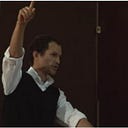The ‘secret’ donor who funded the start-up of The Namibian newspaper
In her 2021 autobiography the renowned editor, Gwen Lister, for the first time disclosed the closely guarded secret of how and where she obtained the initial funding to start The Namibian newspaper. It is a small but important historical detail that has remained hidden from public view for decades.
In Chapter 6 of her autobiography, Comrade Editor, Lister for the first time publicly mentioned that after she had met Sam Nujoma, the leader of Swapo in exile, in France in 1981, she had traveled to Lusaka, Zambia in mid-1984 — ostensibly to attend the Zambian Independence celebrations — where she also met up with him.
According to Lister’s account, she told the Swapo leader that she wanted to start a newspaper to support the struggle for Namibian independence, and recalls that he excused himself for a while and went into a room, returning shortly afterwards with a bag full of cash, which he handed to her, which she was to use to start her newspaper.
Aware of the risks of returning to Windhoek with a bag full of cash, she met with Nujoma’s brother-in-law, Aaron Mushimba, in Lusaka the next day to ask him to transfer the money to her from a London account, which he did.
So far, so good.
The problem though is that by 1984 the Swapo leadership had begun to detain its young cadre who were demanding food and clothes, as well as internal democracy and transparency. This period of internal strife and suppression in Zambia and Angola in the 70’s and throughout the 1980s was documented in great detail by the late Lutheran cleric, Rev Samson Ndeikwila, in his autobiography, Agony of Truth.
The abuses in the camps also came to light during hearings in 1982 before the US Senate as part of the Denton Commission’s inquiry into the role of the Soviet Union in southern Africa, where former Swapo cadre testified to having been subjected to torture and wrongful imprisonment by the leadership in exile, but it remains an open question to what extent journalists on The Namibian editorial team were aware of these documented human rights violations against Namibians in exile at the time.
The Namibian started as a weekly in 1985 and soon rose to prominence for their courageous reporting on the brutality of the occupying South African forces in Namibia, which is surely commendable, but the problem is that while their sponsor, Swapo, was detaining many of its cadre without trial in Angola throughout the 1980s and while the fighters in exile suffered from hunger, deprivation and a lack of internal democracy in the movement, The Namibian newspaper held their silence and thereby concealed this painful fact from their readers until after the surviving detainees at Lubango were released from the dungeons under the watch of UN observers and reporters in May 1989.
